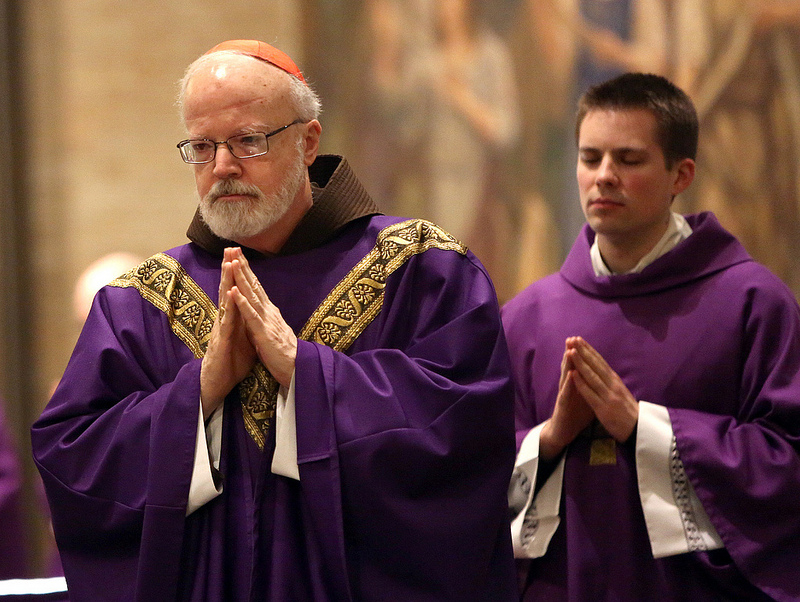Cardinal O’Malley Joins Catholic Push for Immigration Reform
As Congress returns to session today, Boston Catholic Archbishop, Cardinal Seán P. O’Malley, is pushing Catholics to support comprehensive reform of America’s immigration laws.
The Senate passed a bill in June that includes provisions allowing those who immigrated illegally to the United States with a path to citizenship. The Republican controlled House of Representatives has said they won’t take up the bill as a whole, and though it dominated political debate in the spring, newer issues like NSA spying tactics and a military response to Syria threaten to overshadow it.
The Catholic Church has for years supported immigration reform, tying it to their views on the dignity of human life, and their history of welcoming immigrant communities into their parishes. But as the Los Angeles Times reported this weekend, the House is coming back into session after a summer recess, and after several years…
…it’s unclear how the message has been translated from the church pews to the halls of power in Washington. That’s why church leaders are taking a more aggressive approach starting Sunday at Masses held throughout the country.
One of those aggressive pushes came from O’Malley. In a statement that the Boston archdiocese asked Catholic priests to distribute to their parishes, O’Malley noted that Catholicism in America has long been fueled by immigrants. He wrote:
The Catholic bishops are focusing on comprehensive immigration reform which guarantees a path to citizenship for the 11 million undocumented men, women and children already in the United States. The status of those people—whose lives, dignity and human rights are at stake—is the central moral issue at this moment in the policy debates.
Without comprehensive reform it will not be possible to resolve the core issue of the undocumented; partial efforts will leave too much undone. Citizenship is also essential; legal status without a path to citizenship leaves unprotected millions of people who have lived in the shadows for far too long. Comprehensive reform should also be rooted in the principle of family unification.
Pushing for a modern political issue from the pulpit can always get a bit controversial. But at least among the immigrant Catholic communities polled by a Boston Globe reporter yesterday, there was support for O’Malley’s call. The Los Angeles Times adds that polls show general support among Catholics for reform, but not necessarily a strong motivation to take action on behalf of the issue.
Though he acknowledged not everyone would be on board, O’Malley wrote that his goal was “to appeal to the largest single religious community in the nation: American Catholics.” Now it remains to be seen how much clout the Church still carries for the House of Representatives.



